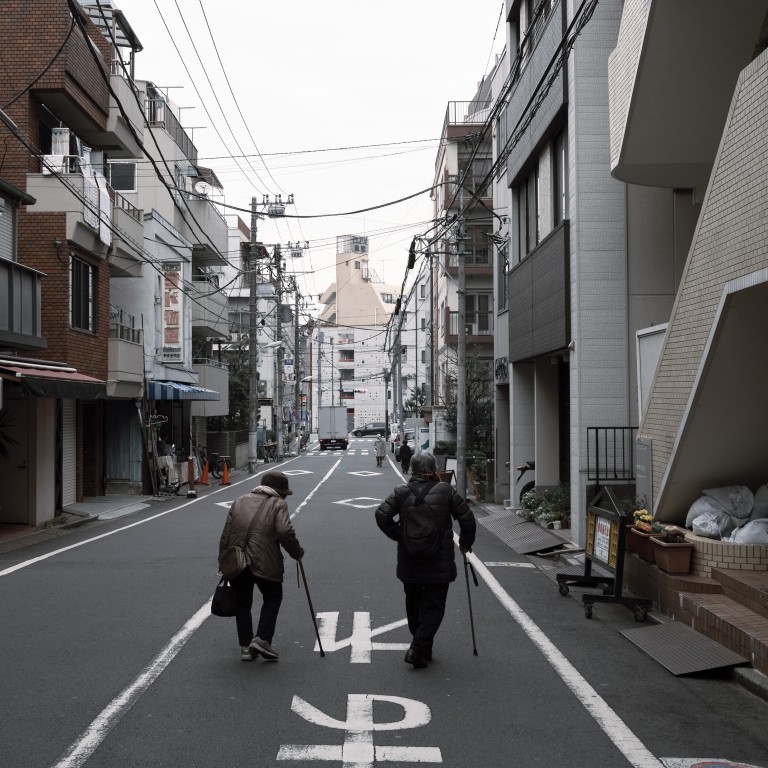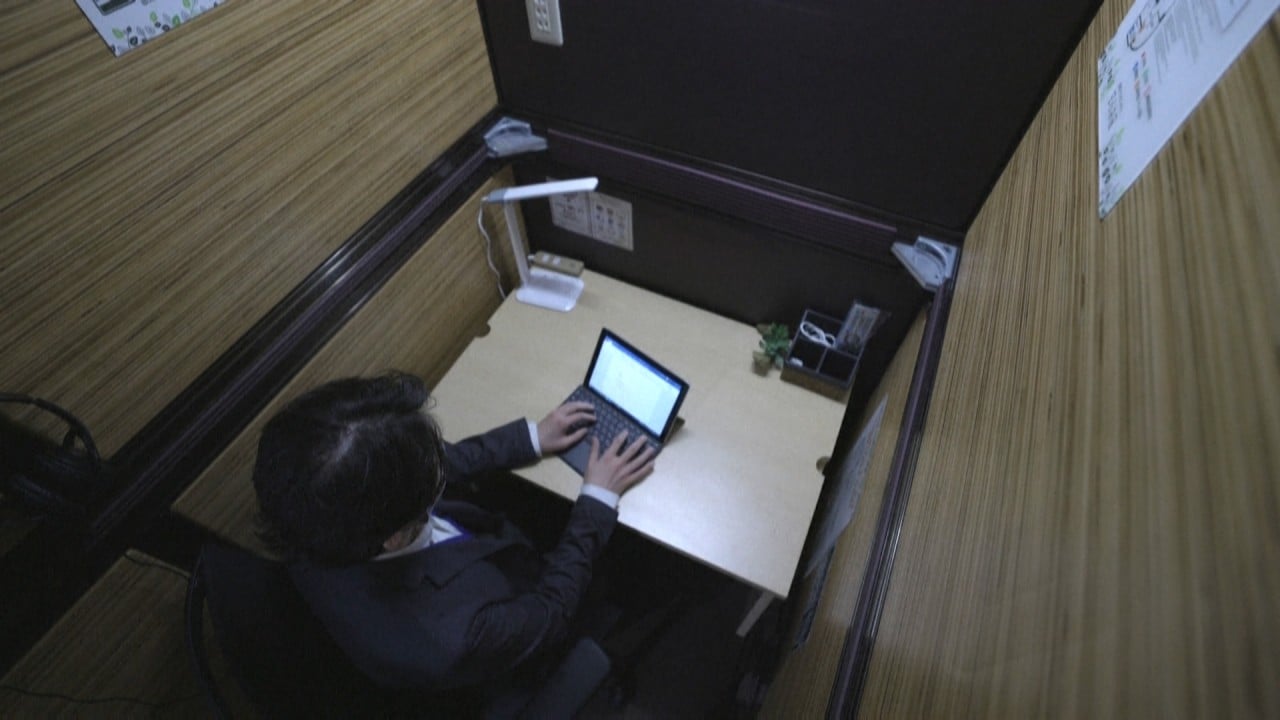
Starvation death of mother and daughter in Japan reveals harsh cost of poverty in the time of coronavirus
- Support centres around the country have seen a surge in consultations, but the tragedy in Osaka shows that there are also those who fall through the safety net
- Evidence shows that phenomenon of ‘kodokushi’, or people dying alone and remaining undiscovered, is becoming increasingly frequent
The Ministry of Health, Labour and Welfare reported this week that there were 391,717 consultations at centres across Japan between April to September, more than three times the number reported in the same period last year.
Anyone struggling to make ends meet can get information on how to apply for government support for lost income or assistance on health issues, and a number of local authorities have also taken over hotels for people with nowhere to live, with priority going to families.
No sweet honeymoon for Japan’s Suga amid pandemic and political scandals
Some centres are providing details on job opportunities, although those seem to be relatively scarce, while local governments are also handing out food packages.
Support centres logged a monthly peak of 95,000 cases in April, apparently due to lost jobs and falling incomes because of the pandemic, but that had fallen to around 40,000 consultations in July. Welfare authorities warn, however, that numbers are once again rising as the number of Covid-19 cases in the country has ticked past 200,000, with over 2,800 deaths.
And even these figures fail to tell the full story, as some individuals continue to fall through the country’s safety net.
On December 11, police entered a flat in Osaka’s Minato Ward and discovered the decomposing bodies of a 68-year-old woman and her 42-year-old daughter. There was no food in the refrigerator, the gas and water had been cut off and there was just 13 yen (less than 13 US cents) in the older woman’s purse.

02:07
Japanese capsule hotels turned into office units to revive businesses knocked out by Covid-19
Police, who had been alerted by the sister of the older woman, said both had been dead for several months, with autopsies revealing that they had both died from malnutrition. The older woman weighed about 30kg when she died.
The Mainichi newspaper reported that the two women – who have not been named – had been living in the flat for about a decade and had initially been active in the local community association. That changed earlier this year, when the younger woman left her job. They confessed to friends that they were short of money and were getting by on cash sent by relatives.
“From a gerontologist’s point of view, young people who live alone in flat blocks have no need for contact with their neighbours,” said Yasuyuki Gondo, a professor of psychology at Osaka University who specialises in elderly people.
“But people who moved into apartments 40 years ago have become elderly and sometimes do not have the energy or resources to take care of the other people around them. That means the only support they get is from the local government, especially if they become exceptionally frail.”
When I was a child, the neighbourhood police officer came around when we moved into a new house, but they don’t do that any more
According to the Osaka authorities, neither of the women applied for or received public assistance, meaning they were never on the radar of the local welfare office.
“When I was a child, the neighbourhood police officer came around when we moved into a new house, but they don’t do that any more,” Gondo said.
“It is considered a question of a person’s privacy and that is the same in flat blocks,” he added. “People tend to keep to themselves and neighbours are afraid about intruding as they think it is a matter of personal privacy, but that means the social network is weaker.”
The phenomenon of kodokushi, or people dying alone and remaining undiscovered, was first identified in Japan in the 1980s, although there is some evidence to indicate it is becoming increasingly frequent, particularly in large cities where the nuclear family mostly no longer exists and more people live alone.

